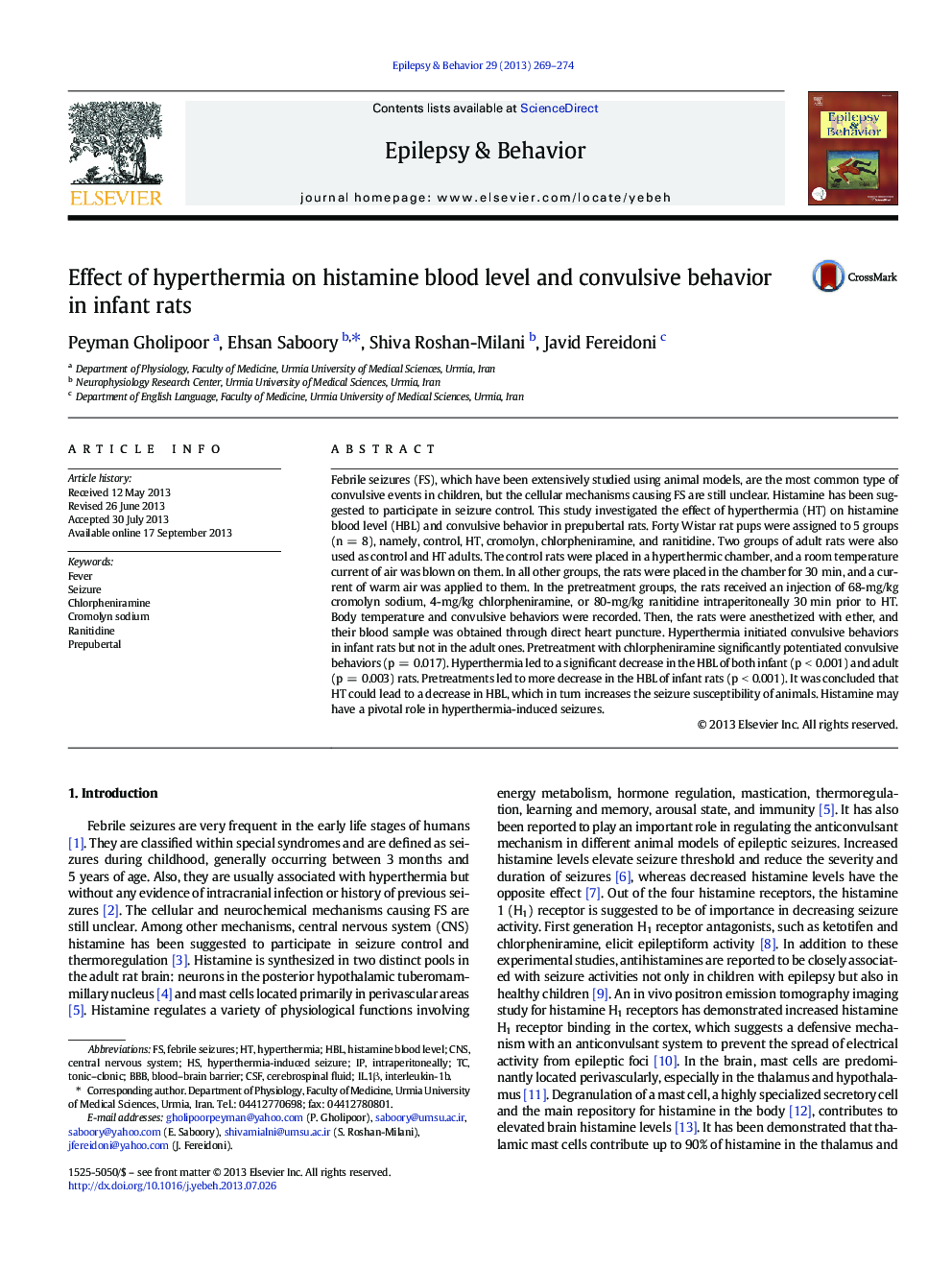| Article ID | Journal | Published Year | Pages | File Type |
|---|---|---|---|---|
| 3049679 | Epilepsy & Behavior | 2013 | 6 Pages |
•Hyperthermia (HT) decreases histamine blood level (HBL) in infant and adult rats.•Decreased HBL increases hyperthermia-induced seizure (HS) susceptibility.•Pretreatment with chlorpheniramine further decreases HBL and potentiates HS.•Diminished histamine level due to HT is partly one reason for HS in infant rats.
Febrile seizures (FS), which have been extensively studied using animal models, are the most common type of convulsive events in children, but the cellular mechanisms causing FS are still unclear. Histamine has been suggested to participate in seizure control. This study investigated the effect of hyperthermia (HT) on histamine blood level (HBL) and convulsive behavior in prepubertal rats. Forty Wistar rat pups were assigned to 5 groups (n = 8), namely, control, HT, cromolyn, chlorpheniramine, and ranitidine. Two groups of adult rats were also used as control and HT adults. The control rats were placed in a hyperthermic chamber, and a room temperature current of air was blown on them. In all other groups, the rats were placed in the chamber for 30 min, and a current of warm air was applied to them. In the pretreatment groups, the rats received an injection of 68-mg/kg cromolyn sodium, 4-mg/kg chlorpheniramine, or 80-mg/kg ranitidine intraperitoneally 30 min prior to HT. Body temperature and convulsive behaviors were recorded. Then, the rats were anesthetized with ether, and their blood sample was obtained through direct heart puncture. Hyperthermia initiated convulsive behaviors in infant rats but not in the adult ones. Pretreatment with chlorpheniramine significantly potentiated convulsive behaviors (p = 0.017). Hyperthermia led to a significant decrease in the HBL of both infant (p < 0.001) and adult (p = 0.003) rats. Pretreatments led to more decrease in the HBL of infant rats (p < 0.001). It was concluded that HT could lead to a decrease in HBL, which in turn increases the seizure susceptibility of animals. Histamine may have a pivotal role in hyperthermia-induced seizures.
